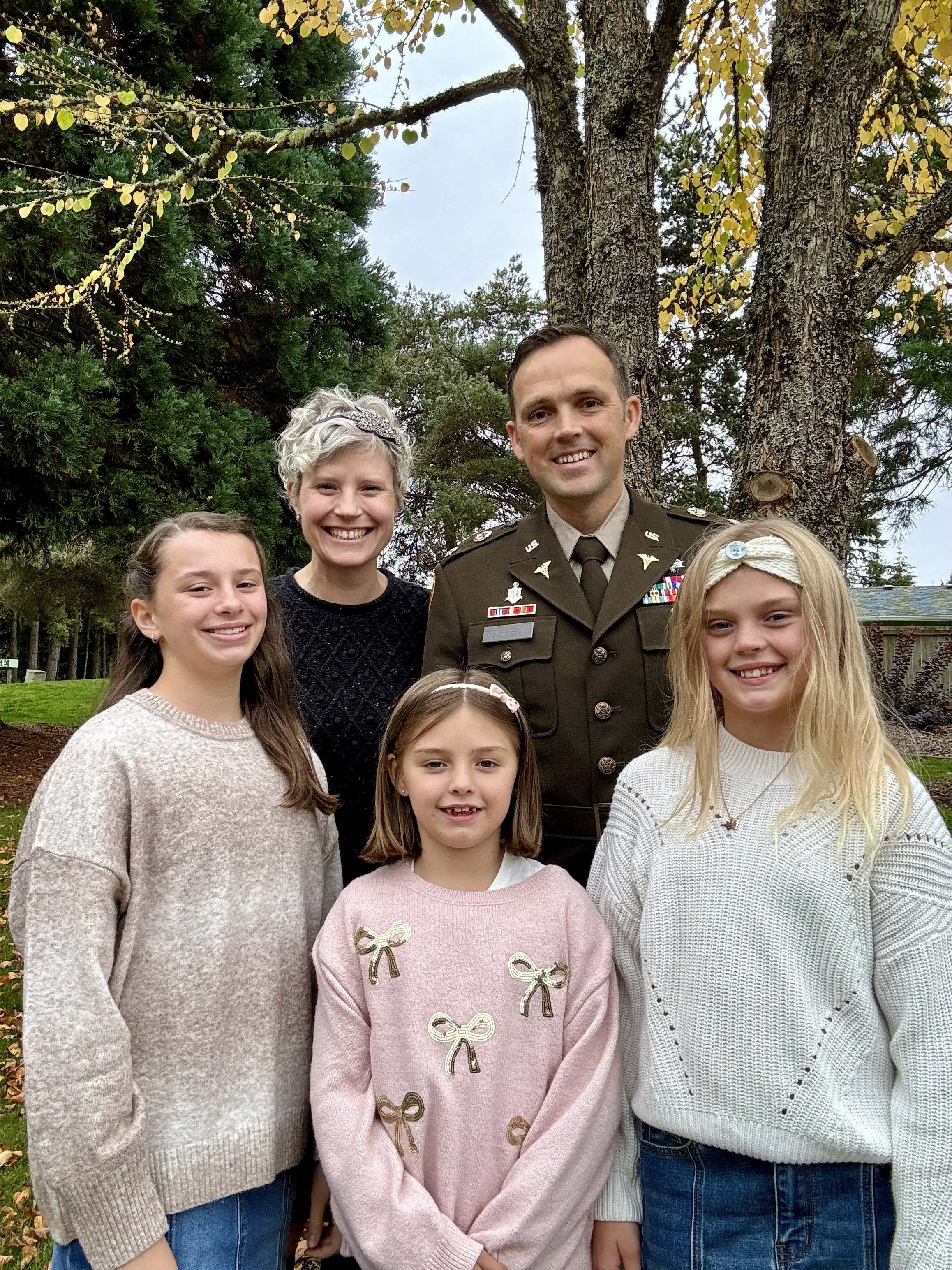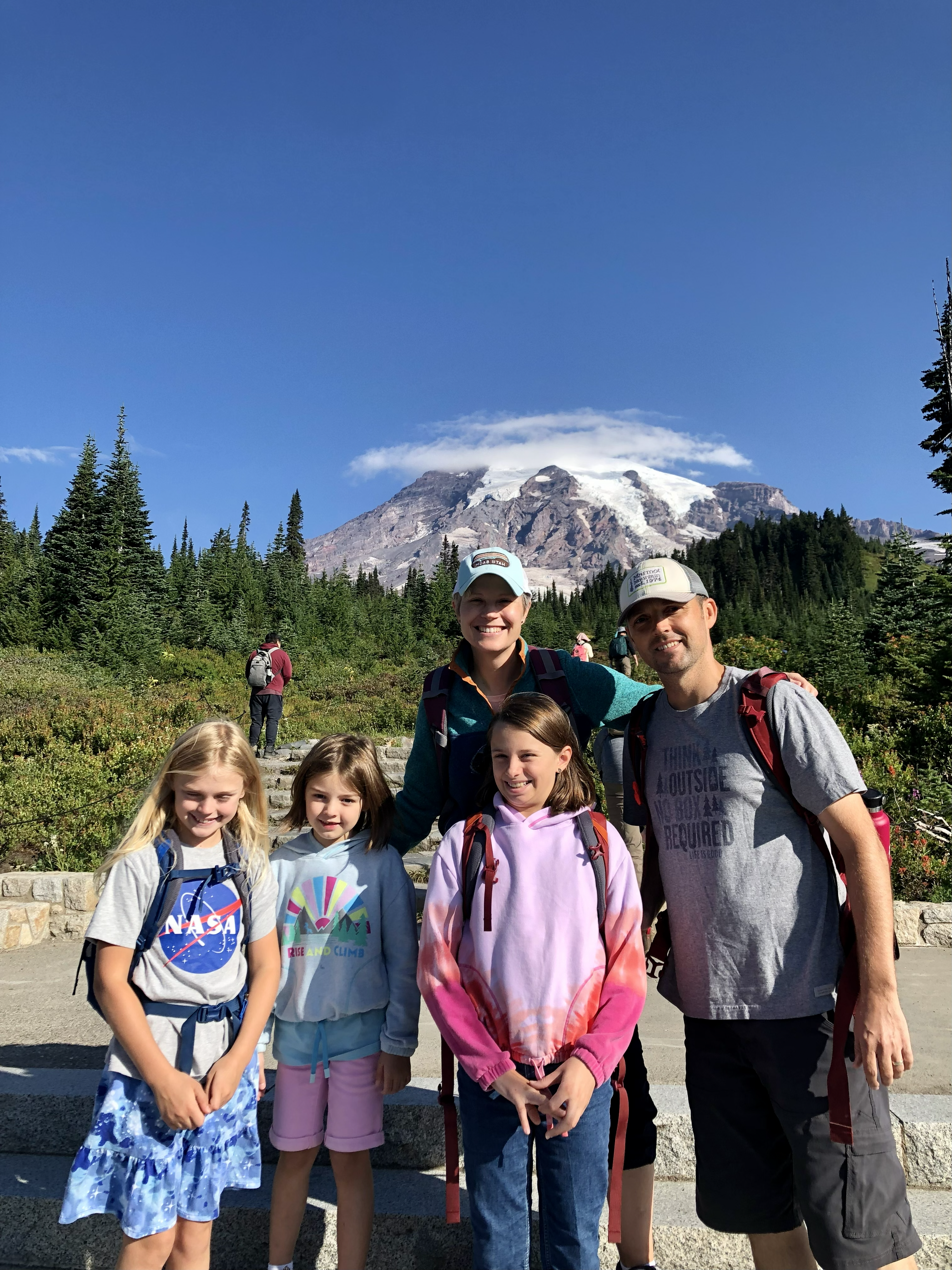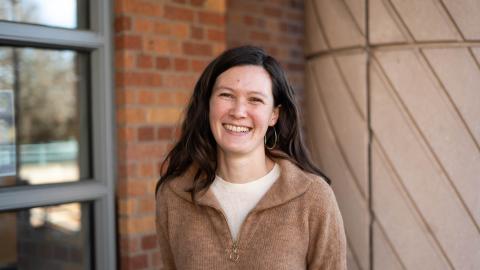When Dr. Mark Robinson started his MPH in Occupational and Environmental Medicine at the UW, he wanted to do research that would help his fellow soldiers.

Robinson, a lieutenant colonel in the U.S. Army, wondered how smoke from regional wildfires would affect the large population of servicemembers at Washington’s Joint Base Lewis-McChord (JBLM), where he was doing a residency in preventive medicine at the base’s Madigan Army Medical Center.
Inspired by earlier research in the UW Department of Environmental & Occupational Health Sciences (DEOHS) showing a spike in emergency room visits during wildfire smoke events, he designed a similar study for active-duty military personnel at JBLM.
Robinson’s eventual MPH thesis showed that, during days with substantial exposure to wildfire smoke from 2018 to 2024, active-duty military personnel at JBLM had increased visits to the emergency department for respiratory and behavioral health issues — including depression, anxiety and mood disorders.
The study was recently published in the Journal of Occupational and Environmental Medicine.
“The results highlight the vulnerability of even a relatively healthy military population to wildfire smoke, with implications for broader public health,” Robinson wrote in his thesis.
Protecting servicemembers
To protect servicemembers’ health, Robinson recommends that military bases have their own air quality sensors.
“It’s so important to be mindful of our environment,” he said. “In the workplace, there are so many different kinds of exposures we can come into contact with, and it’s important to be aware of how we can protect ourselves against them.”

Robinson’s fellow resident Captain (Dr.) Carlie Skellington is now expanding Robinson’s study to take into account the whole population at JBLM, including staff and families.
Together, the researchers are interested in examining the impact of wildfire smoke on other health concerns, such as preterm deliveries and cardiovascular events. They also plan to study how patients’ conditions vary by level of air quality, and investigate the difference between emergency department visits for pre-existing conditions, such as asthma, and new diagnoses.
A perfect match
Robinson originally trained as a family medicine doctor, but his strong interest in global and environmental health led him to apply for his dual program, sponsored by the Army. It combined a residency in preventive medicine at Madigan with an MPH in DEOHS.
At the UW, he enjoyed working with Dr. Debra Cherry, who directs the Occupational and Environmental Medicine program, and formed bonds with both fellow students and faculty. At Madigan, he worked closely with Colonel (Dr.) Luke Mease, who directs the residency in preventive medicine and is a clinical assistant professor in DEOHS.
Conversations with DEOHS alum Annie Doubleday — whose initial study inspired his thesis — and Professor Lianne Sheppard helped guide his research.
Robinson is now a command surgeon and preventive medicine officer for a U.S. Army medical brigade in Germany.
“The program exceeded my expectations and helped guide where I want to go professionally. I’m now applying so much of what I learned in the medical brigade, where we take care of soldiers all across Europe and Africa,” he said.
“Soldiers are exposed to so many different factors in the environment, whether manmade or natural, and we’re trying to take care of them and make sure they’re healthy.”




